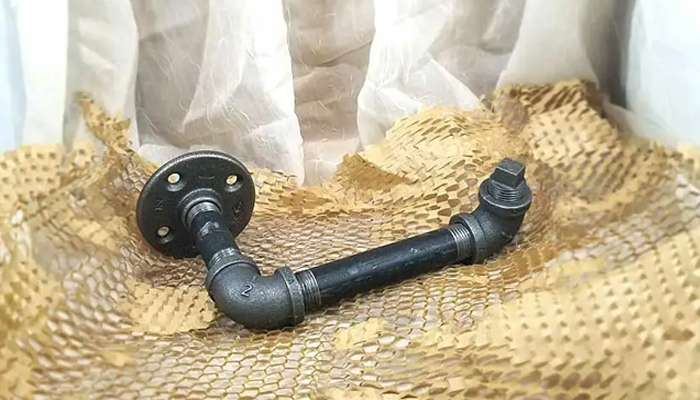This article will walk you through the process of installing black iron pipes, including the tools and materials you’ll need, as well as some useful tips and tricks to make the job go more smoothly.
Do you want to put in black iron pipes in your house or business? Because of their durability and corrosion resistance, black iron pipes are a popular choice for plumbing and heating systems. However, installing them might be a difficult operation, particularly if you’ve never done it before.
How to Install Black Iron Pipes? In this article, we will guide you through the process of installing black iron pipes, including the tools and materials you’ll need, as well as some helpful tips and tricks to make the process smoother.
Before You Start
There are a few things you should think about before beginning to install your black iron pipes. To begin, ensure that you have all of the necessary tools and materials, such as pipe cutters, pipe wrenches, and Teflon tape.
To avoid damage or leaks, you should also switch off the water supply to your home or business. Finally, ensure that you understand the layout of your plumbing system as well as the locations of any existing pipes or fixtures.

Step 1: Measure and cut the pipes
The first step in putting in black iron pipes is to measure and cut them to the correct length. Use a tape measure to estimate the length of pipe required.
Then cut the pipe to the desired size with a pipe cutter. To avoid injury, wear gloves and safety glasses when operating the pipe cutter.
Step 2: Connect the Pipes
After you’ve cut your pipes to the proper length, you’ll need to thread them through the black pipe fittings. Apply a small piece of Teflon tape to the threads of the pipe and fitting to accomplish this. This will allow the pipe to pass smoothly through the fitting and form a tight seal.
Step 3: Connect the Fittings
After threading the pipes through the fittings, you’ll need to connect the fittings. Tighten the fittings securely with a pipe wrench, being careful not to overtighten, which might damage the pipes or fittings.
Step 4: Put the System to the Test
Once all of the fittings are connected, test the system to ensure there are no leaks. Turn on the water supply and double-check each fitting and connection for leaks. If a leak is discovered, tighten the black pipe fittings or replace the pipe as needed.

Suggestions and Tricks
Here are a few pointers to remember when installing black iron pipes:
1. Use the right kind of pipe for the purpose. Black iron pipes are available in a variety of sizes and styles, so be sure you’re utilizing the correct one for your plumbing system.
2. Make a tight seal between the pipe and fitting with Teflon tape.
3. To avoid harming the pipes or fittings, tighten the fittings firmly but not too tightly.
4. To avoid movement and vibration, use pipe clamps to fasten the pipes to the walls and floors.
Conclusion
Installing black iron pipes can be difficult, but with the correct tools and materials, as well as a little know-how, you can do it yourself.
Remember to take your time, attentively follow the procedures, and use the tips and tactics we’ve offered to make the process go more smoothly. These black iron pipes will provide you with a long-lasting and dependable plumbing system.
